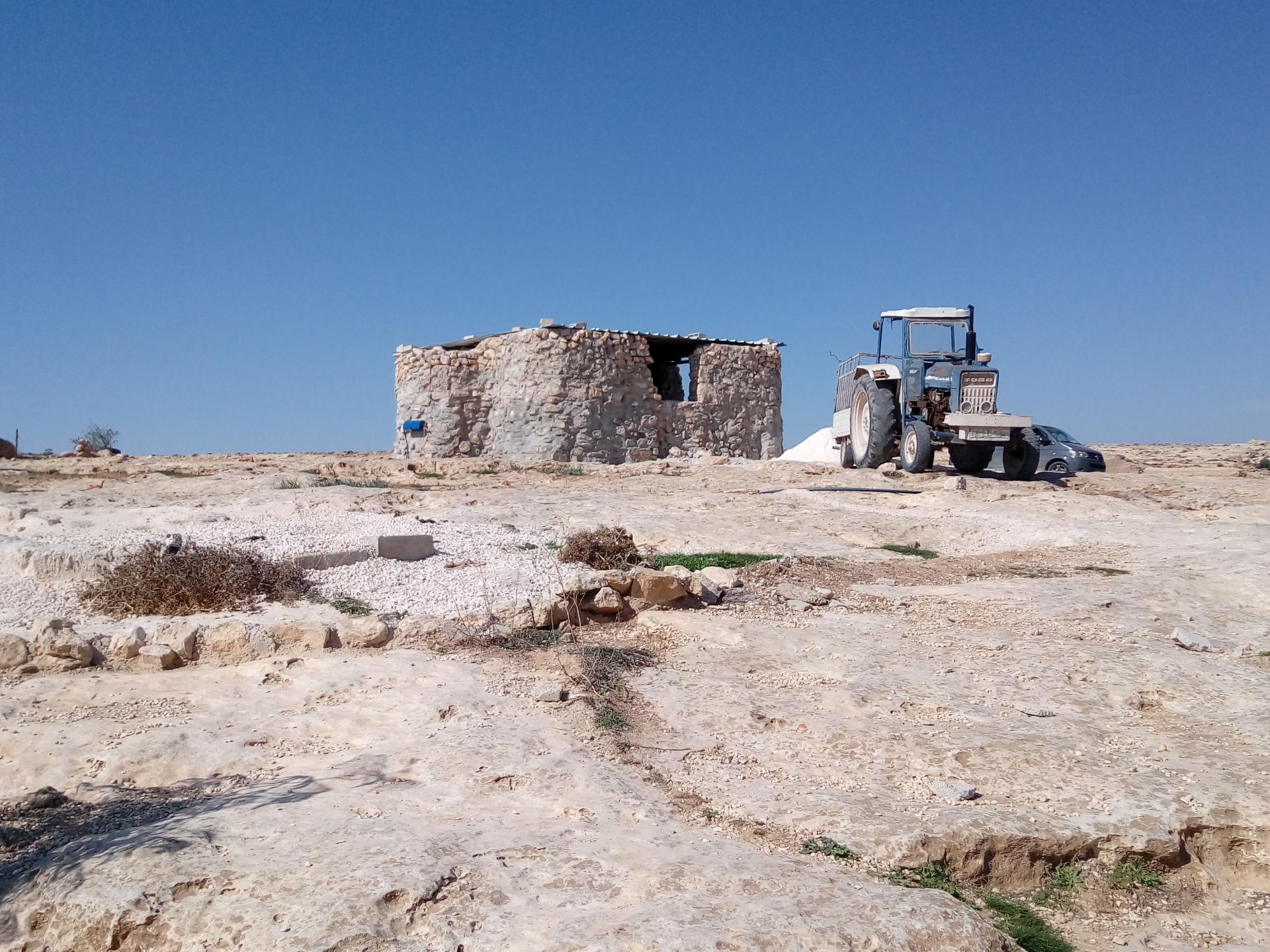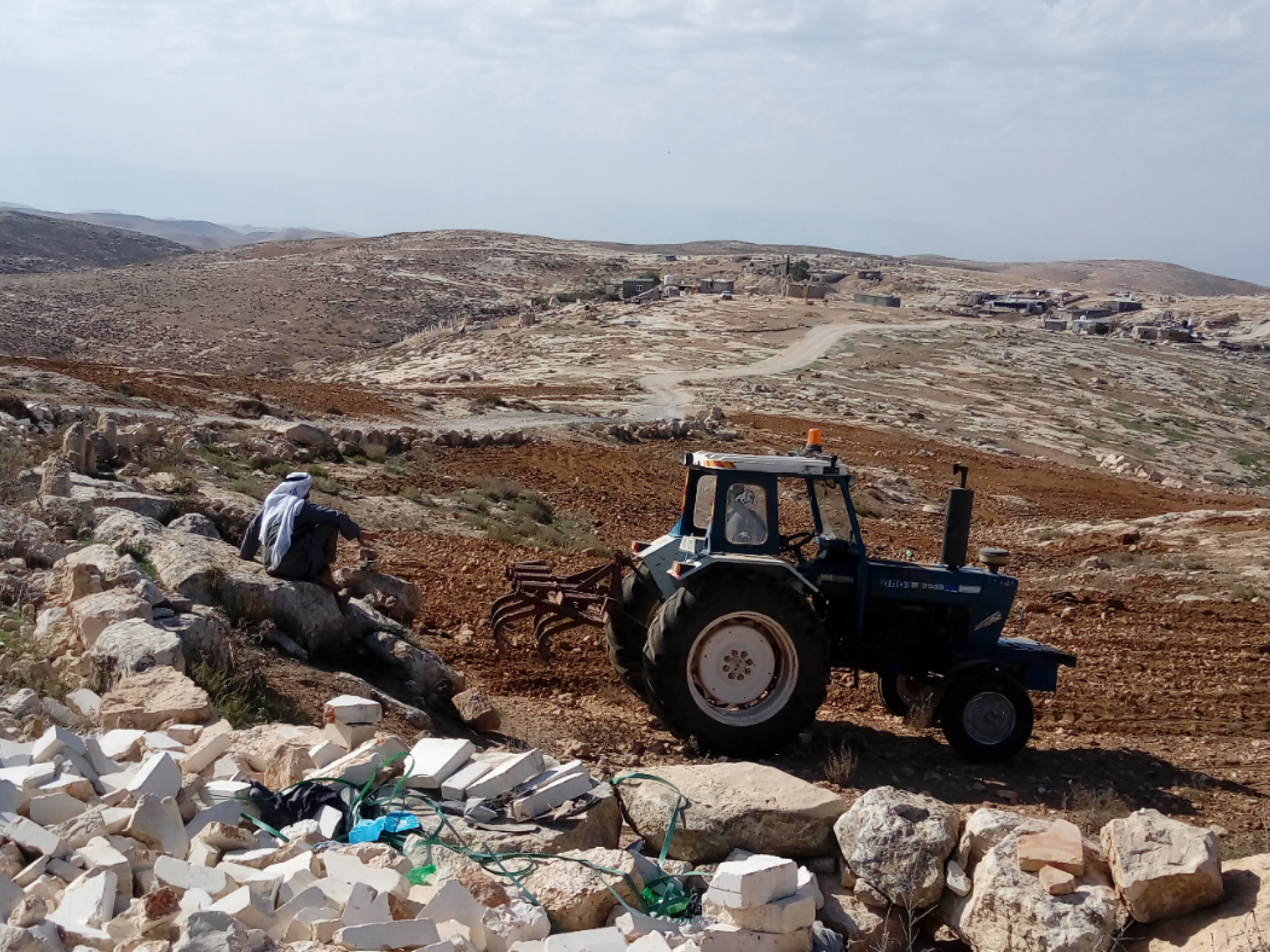South Hebron Hills, Susiya
The ploughing and sowing are in full swing, and the tractors plough every tiny piece of land between the rocks and there is maximum exploitation of the area.
We looked at the "Avigayil" spring as the settlers call the small pool that serves them for bathing / immersion (forgetting a towel there).
We went to visit the family of Fadel at Um Fakra, but we found only his daughter and daughter-in-law. The eldest son now ploughs in a far more distant area, the mother is in the pasture with the sheep and the children at the school in A-Tuwani
They tell us that their neighbors were given demolition orders a month ago.
They have a connection to the water, but for a week they have been cut off (a fairly common phenomenon, as we knew at Huda's and from the family's house in Hebron). Usually because it is claimed that there is an unpaid debt. This explains the large water tanks lying on the rocks near the house. They are brought in by a truck or a tractor.
Near the ruins of the mosque that remained here as a sign of Cain for years - they are building a tiny village mosque, still unfinished but already used for prayer.
At Tuwani we wanted to meet the Italians but they were not in the area. We went to Susya. Azzam and Nasser went with an attorney to the antiquities site (it is interesting to follow the results). And Wadha says that lately the area has been quiet, there was no administrative and military harassment. We asked about the plot on the other side of the road opposite Susya, the plot of Farid Jabbur, which a few months ago the army, on behalf of the Civil Administration , twice confiscated the sheds he had built. He has olive trees and a vegetable tower here. He began digging a water cistern (we saw the excavation) and the army came and took the contractor's equipment
, twice confiscated the sheds he had built. He has olive trees and a vegetable tower here. He began digging a water cistern (we saw the excavation) and the army came and took the contractor's equipment


